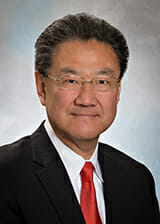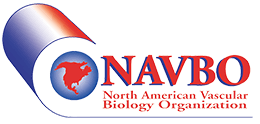
Exploring New Mechanisms for Macrophage Activation: a Systems Approach
August 1, 2019
MASANORI AIKAWA, M.D., PH.D.
Associate Professor of Medicine
Yoshihiro Miwa Associate Chair & Founding Director
Center for Interdisciplinary Cardiovascular Sciences
Brigham and Women's Hospital and Harvard Medical School
Took place on August 1, 2019 at 1:00pm EDT
MASANORI AIKAWA -
Dr. Masanori Aikawa is Yoshihiro Miwa Associate Chair and Founding Director of the Center for Interdisciplinary Cardiovascular Sciences and a principal investigator at the Center for Excellent in Vascular Biology of Brigham and Women’s Hospital (BWH) and Associate Professor of Medicine at Harvard Medical School (HMS). He received his MD and PhD degrees from Juntendo University, Japan. He was recently elected as President of NAVBO 2020-2021. Dr. Aikawa’s initial research at the University of Tokyo demonstrated the diversity of smooth muscle cell phenotype in developing and diseased arteries through the cloning and characterization of human myosin heavy chain isoforms. As Research Fellow at BWH/HMS, he pioneered the “plaque stabilization” theory by lipid lowering. As a faculty member, Dr. Aikawa provided the first in vivo evidence for the impact of MMP-collagenases on collagen in atherosclerosis and aneurysms. He published early reports of in vivo molecular imaging of atherosclerotic plaque macrophages. In the past decade, his laboratory has explored new signaling mechanisms for macrophage activation. A series of his studies demonstrated the pro-inflammatory role of Dll4-Notch signaling in vascular disease. More recently, Dr. Aikawa’s systems approach to target discovery for cardiovascular diseases has used innovative technologies including multi-omics, original bioinformatic programs, network analyses, and machine learning.
PRESENTATION -
Pro-inflammatory activation of macrophages contributes to the pathogenesis of atherosclerosis; however, its underlying mechanisms are incompletely understood. Despite the availability of potent drugs for modifiable risks, complications of atherosclerosis remain global health threats. To challenge residual risk, my laboratory explores novel mechanisms for macrophage activation as an important first stride towards the development of new therapies. For example, we demonstrated that Delta-like ligand 4 (Dll4)-Notch signaling promotes pro-inflammatory responses in macrophages and cardiometabolic disorders (e.g., atherosclerosis, calcification, vein graft disease, obesity, diabetes, fatty liver). While many potential targets have been proposed by others and us, the science community recognizes that complex mechanisms of human diseases involve intertwined crosstalk among many molecules and pathways, and understanding individual and collective contributions of components to macrophage activation is critical. To speed up the discovery of promising targets, we have recently used a systems approach, involving multi-omics, our original bioinformatics programs, and computational prediction by network analysis. We recently took such a strategy to explore mechanisms by which chronic kidney disease accelerates inflammation. Unbiased proteomics and network analysis identified the interplay of Dll4-Notch and ubiquitin-proteasome pathways that mediate pro-inflammatory macrophage activation induced by a major uremic toxin indoxyl sulfate. Dll4 suppression by the blocking antibody or siRNA indeed reduced atherogenesis in mice with kidney failure. Our systems approach also identified other regulators of macrophage activation, including ADP-ribosylation enzymes PARP9 and PARP14. Network analysis linked these PARPs with human arterial disease, which was further substantiated by in vivo studies using PARP14-/-mice. We believe that the combined use of innovative computational technologies and careful validation experiments helps to facilitate the translation of basic science discoveries into new therapies for vascular disease.
